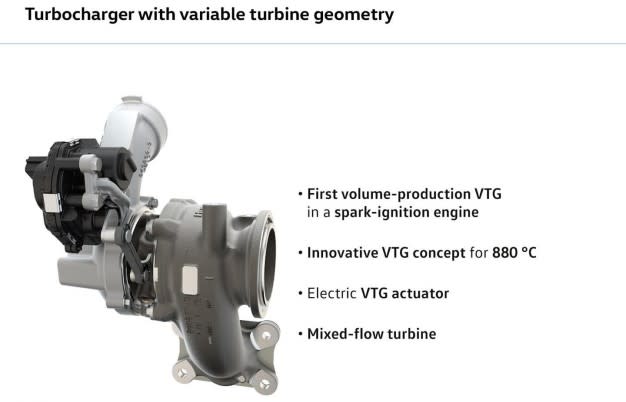VW's New Gasoline Engine Uses Turbo Technology From the Porsche 911 Turbo

In the wake of its diesel-emission cheating scandal, VW has been saying that its strategy now is all about electrification and/or autonomous driving-but before that shift, the company had been working on a number of conventional gasoline-burning engines that it hopes will raise the bar across the industry. Case in point: The next evolution of the EA211 four-cylinder engine.
Dubbed EA211evo, the new engine gets a 1.5-liter displacement and comes in two power levels: 130 and 150 horsepower. Both versions aim to serve as benchmarks in responsiveness and efficiency. Thanks to a number of technologies that include cylinder deactivation, VW says they consume about 10 percent less fuel than the outgoing, already very efficient 1.4-liter EA211.

Why more displacement? It "paves the way for future power increases," says VW, and that's also why the company is developing new forced-induction technologies-such as the first mass-produced variable-geometry turbocharger in a non-diesel engine-a technology pioneered (and subsequently abandoned) by PSA, Honda, and Chrysler in the late 1980s and early '90s. It's currently only available on two Porsche models (the 718 Boxster S and the 911 Turbo) and in heavy-duty diesels from GM, Ford, and Ram. The variable-vane turbo is currently only included in the 130-hp version of the engine; it is essential in reaching maximum torque about 35 percent quicker than with a conventional turbocharger. The 150-hp version has especially low friction thanks to cylinder linings sprayed in an APS process (atmospheric plasma spray).
On the U.S. market, there are currently only two applications for the German-built EA211: In the entry-level Jetta and in the Jetta hybrid. That may change down the road. Within a few years, VW will build the EA211evo in Silao, Mexico, which would perhaps allow more widespread use in American models.

 Yahoo Autos
Yahoo Autos 